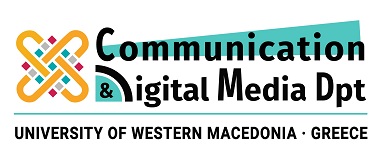CDM JMO 1 EU CRISIS MANAGEMENT CAPABILITIES AND MECHANISMS
LEVEL OF STUDY: UNDERGRADUATE
COURSE UNIT CODE: CDM JMO 1
SEMESTER: 6th
COURSE TITLE: EU CRISIS MANAGEMENT CAPABILITIES AND MECHANISMS
TEACHING WEEKLY HOURS: 3 H/W LECTURES
ECTS: 5
COURSE TYPE: OPTIONAL
TEACHING AND EXAM LANGUAGE: GREEK
COURSE DELIVERY TO ERASMUS STUDENTS: YES (in English)
This course aims to introduce students to the different types of crises faced by EU with emphasis on the transboundary crises as well as present the various EU sectoral agencies that are responsible for the effective management of different crises [e.g., European Medicines Agency (EMA), European Food Safety Authority (EFSA), European Centre of Disease Prevention and Control (ECDC), European Network and Information Security Agency (ENISA)], etc. Moreover, students will acquire an understanding of the EU crisis response mechanisms like the European civil protection mechanism, the integrated political crisis response arrangement (IPCR), the emergency response coordination center (ERCC), the EEAS Crisis Response System (Crisis Platform, EU Situation Room, Crisis Management Board), etc. A significant part of the course will be dedicated to the analysis of the crisis management capacities of the EU during the different phases of a crisis with emphasis on the following capacities: detection, sense making, decision making, coordination, meaning-making and communication, and accountability. The course is part of the Jean Monnet Chair in Risk and Crisis Communication Management in the EU (2022-2023).
Upon successful completion of the course students will be able to:
- They identify events as crises, distinguish the different types of crises facing the EU and analyse mechanisms and responses undertaken by EU agencies at each stage of the crisis.
- Assess and evaluate the European Union's crisis management mechanisms and elaborate on their effectiveness.
- Discuss the ways in which the EU and its member states along with the assistance of supranational organizations and non-governmental organizations (at all levels e.g. government, municipalities, etc.) manage different types of crises such as terrorist attacks, natural disasters, pandemics, refugee crisis, etc.
- Assess EU policies and caring initiatives during and after the crisis events
